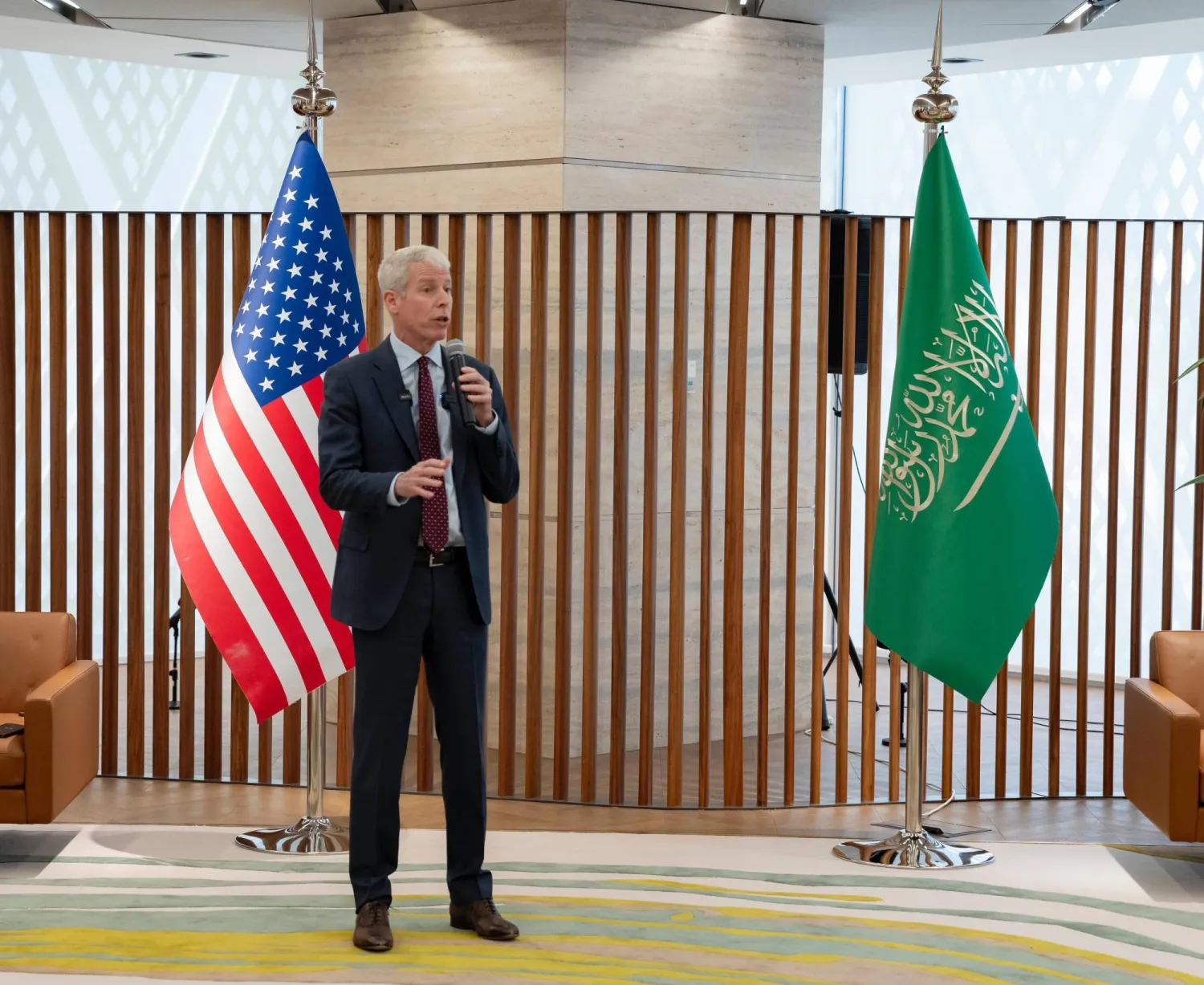The United States and Saudi Arabia will sign a preliminary agreement on energy cooperation and civilian nuclear technology, US Energy Secretary Chris Wright said on Sunday.
Wright spoke at a press conference in the Saudi capital Riyadh where he arrived from the United Arab Emirates on Saturday as part of a regional tour that will also take him to Qatar.
His visit comes amid world economic turmoil over the tariffs imposed by US President Donald Trump. But Wright said that these tariffs don’t seek to restrict trade, rather they aim for fair and reciprocal trade.
His visit also comes ahead of an expected visit by Trump to the Kingdom, the UAE and Qatar in May to consolidate relations.
The US Energy Secretary told journalists at the Saudi Energy Ministry that Riyadh and Washington were on a "pathway" to reaching an agreement to work together to better develop energy resources and energy infrastructure, in addition to mining cooperation, civilian nuclear technology and energy production.
Wright said further details over a memorandum detailing the energy cooperation between Riyadh and Washington would come later this year.
Saudi Minister of Energy Prince Abdulaziz bin Salman announced last September that the Kingdom is working to develop peaceful uses for nuclear energy across various fields.
In his press conference on Sunday, Wright discussed the meetings he has held in Riyadh. There have “been very wide ranging dialogues for a day and a half now and they're going to continue. We've talked about energy in all aspects of energy. We've talked about mining, critical materials. We've talked about processing in industry. We've talked about climate change. We've talked about human lives and what drives their improvement and how best to achieve those ends,” he said.
On Saturday, Prince Abdulaziz met with Wright at King Abdullah Petroleum Studies and Research Center (KAPSARC) where the US official was briefed on the Center's role in the fields of energy policy research and its transitions, climate change, sustainable transportation, and consultancy services, in addition to the development of models and analytical tools that contribute to finding solutions to current challenges in the energy sector. They also discussed opportunities for cooperation in energy research, exchange of expertise, and strengthening joint research efforts.
Wright said Sunday that he believed “Saudi Arabia will be one of the leading countries in investing in the United States. I think that's a win for the Kingdom here. It's a win for the United States. And for us, most importantly, it's a win for the working class and American citizens to have better job opportunities.”
He added that the “broader objectives” of the US and Saudi Arabia “are prosperity at home and peace abroad.”
Wright also said in response to a question by Asharq Al-Awsat that tariffs are part of Trump's economic agenda.
He said Trump is trying to grow the flow of goods outside the United States into other countries while sustaining imports and engagement with countries from around the world. “So that's a way you could describe this. Fair trade, not restricted trade, just fair trade, reciprocal trade.”
He added that the United States has seen a lot of its intensive industries, particularly energy, move outside of the country and be outsourced somewhere else. “Too many Americans have seen their job opportunities shift overseas.”
“So tariffs are also a way to give a nudge and encourage investment into our country, to make products in our country, to grow economic opportunity and prosperity in America.”









